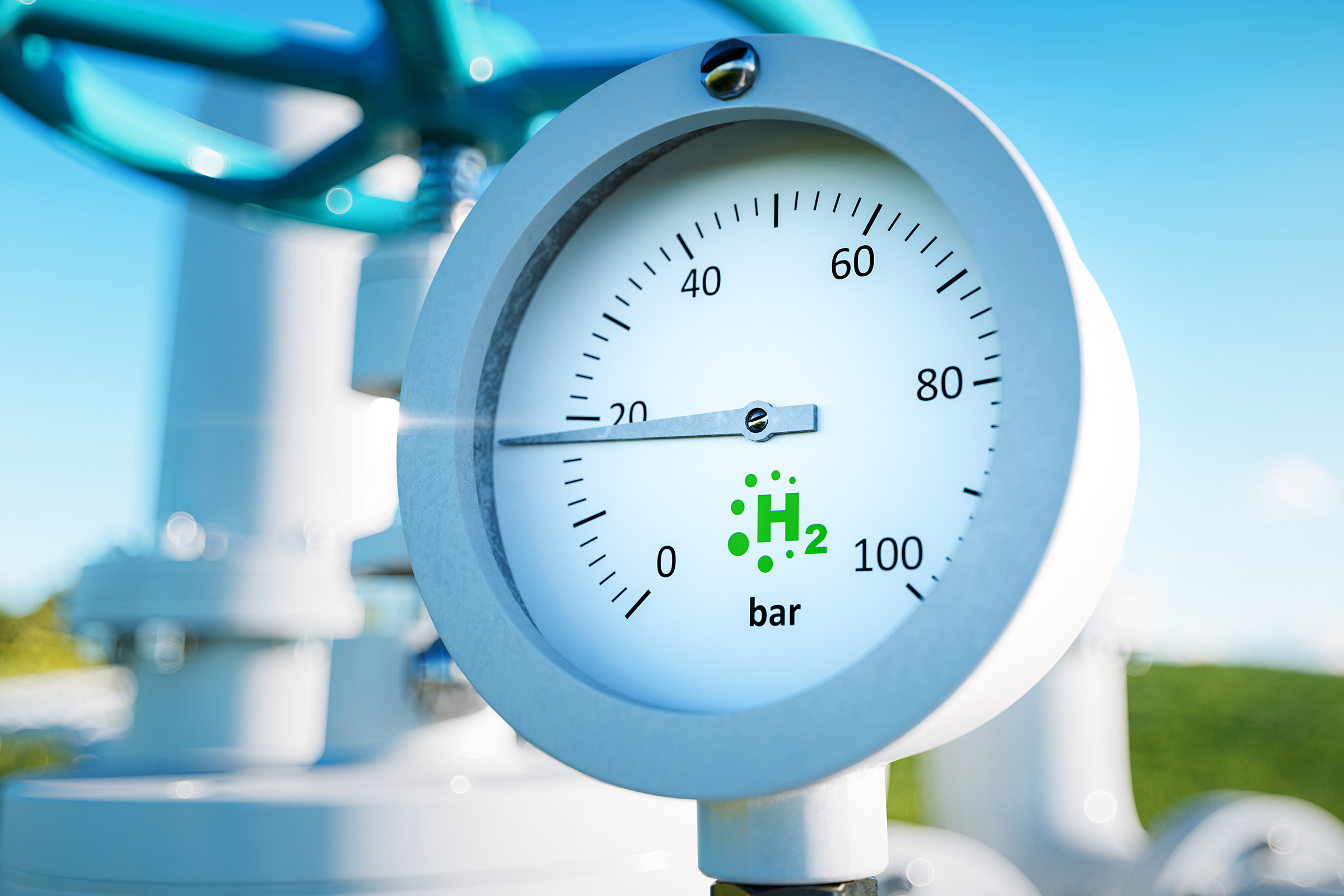Switching to hydrogen? Stork helps!
In theory, the combustion of hydrogen only releases heat and water, and not CO2 as is the case with the combustion of fossil fuels. This is the main reason why more and more companies are showing increased interest in switching to this “clean” fuel.
The demand for hydrogen is taking serious shape as an alternative to other fuels such as natural gas. The reason lies on the one hand in the sustainable nature and, on the other, that various prognoses show that more and more hydrogen will become available. This is because hydrogen production by electrolysis offer an excellent solution for storing the excess green electrical energy that has been generated. The “green hydrogen” that is produced by this method is a genuinely sustainable fuel, as only oxygen is released during production by means of electrolysis.
Difference between hydrogen and fossil fuels
Systems that are designed for fossil fuels such as natural gas cannot simply switch over to hydrogen without modification. The properties of the two gases differ too much.
Lower calorific value
One of the main differences is the calorific value, or heating value. Hydrogen has a calorific value per unit volume that is about three times lower than that of natural gas. This means that three times the volume of hydrogen is needed to produce the same amount of heat in a given unit of time. Depending on the supply conditions, this can possibly have an impact on the gas supply system.
Higher combustion temperatures
The combustion of hydrogen also gives higher combustion temperatures (about 200 °C higher), which potentially has consequences for the boiler. The higher temperatures also lead to more Nox being porduced. This is because nitrogen molecules convert more easily to nitrogen oxides at higher temperatures. The problem only arises in combustion with normal outside air, which naturally contains nitrogen.
Peripherals
There is no need to modify the existing equipment around the combustion facility. The same parts of the existing piping can generally still be used, provided that sufficient attention is paid to valves and flanges. Because hydrogen molecules are smaller than natural gas molecules, they can escape more easily and that mainly results in loss of fuel. This doesn't necessarily lead to a hazardous situation in all cases, however. Hydrogen is fourteen times lighter than air, so it dissipates immediately when it escapes.

From design to maintenance
Looking at the above, it can be concluded that switching to hydrogen – or possibly a hybrid system – requires a high level of expertise.
Stork has accumulated a wealth of knowledge and experience in engineering and construction, as well as in the maintenance of hydrogen systems. Process calculations (burner and boiler), dimensioning and instrumentation are day-to-day tasks for our engineers. Not only do they look closely at the functionality of the solution, but also at the impact that the combustion facility has on the environment (emissions, gas cleaning possibilities and so on) and on process optimization.
Moreover, to keep hydrogen systems running efficiently and safely for the long term, proper maintenance is of crucial importance. Stork has utilized the past years to develop maintenance procedures and uses the right measuring and inspection equipment to determine the condition of the plant on relevant points. The type of corrosion in hydrogen plants is different, for example, and therefore requires specific knowledge and experience so it can be detected in time. Based on the findings, the required maintenance can be carried out.
Switching to hydrogen
Our Stork experts support companies with their transition to hydrogen by first taking stock of the initial situation. Questions they ask include: What does the existing installation look like? How is the boiler used? And what is needed for the new installation to comply with current laws and regulations and the latest “state of the art”? The latter is particularly important because many plants are more than ten years old and may be in need of an efficiency upgrade or major maintenance.
Also the desired application plays a role, of course. Is this identical to the application that the boiler was originally designed for, or have any modifications taken place over time? If so, it might be necessary to make adjustments in those areas as well. It's also important to think about the immediate as well as the distant future. If a hybrid system is chosen, for instance, the question arises whether there is any intention to switch to full hydrogen at a later stage.
Based on the findings during the pre-study phase and in combination with energy calculations, among other things, Stork presents one or more proposals for the conversion. An additional option is to apply reversed engineering, which involves looking in detail at how the current installation functions and whether improvements can be made. Once the proposal is approved, Stork proceeds with construction and finally commissioning of the facility.
A big advantage during this process is that Stork works in all disciplines; from pre-study and engineering to construction, commissioning and maintenance. Stork also supplies the equipment required, including the burners and the boilers. And because the knowledge and experience is available within one company, the end result not only meets the technical specifications, but also the requirements on working efficiently and safely.
Furthermore, a customer has just one point of contact for the entire hydrogen system. A point of contact who knows every detail of the installation and is therefore able to respond quickly and adequately when the situation demands it.